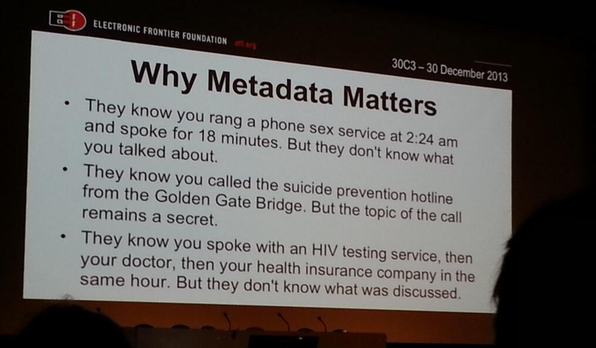
Metadata: government seeks to expand surveillance powers
The federal government is proposing a major expansion of intelligence gathering activity that will put telcos at the centre of an enlarged surveillance system.
The plan would require telecommunications companies to retain “metadata” on customers’ phone and internet activity for a period of two years.
The proposal, which comes at the request of Australia’s intelligence agencies, has not been travelling well since it was announced, not least because the government has struggled to explain just what information would be stored.
Prime Minister Abbott suggested that it would be only the electronic envelope, as it were, and not the letter. But this is either ignorant or deliberately misleading. The information agencies are seeking will include browsing histories, call locations and durations and who you tweeted. Once you’ve got all that you don’t really need to read the “letter”.
Indeed, as the US National Security Agency’s former General Counsel Stewart Baker said in 2013, “Metadata absolutely tells you everything about somebody’s life. If you have enough metadata, you don’t really need content.”
Australian telcos such as iiNet and Optus are questioning the costs that these data retention requirements will involve.
But for the rest of us the question is the intrusion into our private lives and the threat to civil liberties this represents.
Blanket communications data retention was found by the European Court of Justice in April this year to violate the Charter of Fundamental Rights.
And last month United Nations High Commissioner for Human Rights (UNHCHR) Navi Pillay released a report “The Right to Privacy in the Digital Age”, that found that surveillance practices carried out by the major powers, the United States and the United Kingdom, in particular, violate basic principles of international law and are destructive of democratic rights.
The Australian government is now moving to follow in these undemocratic footsteps.










